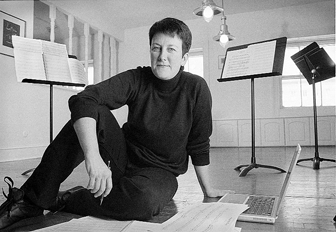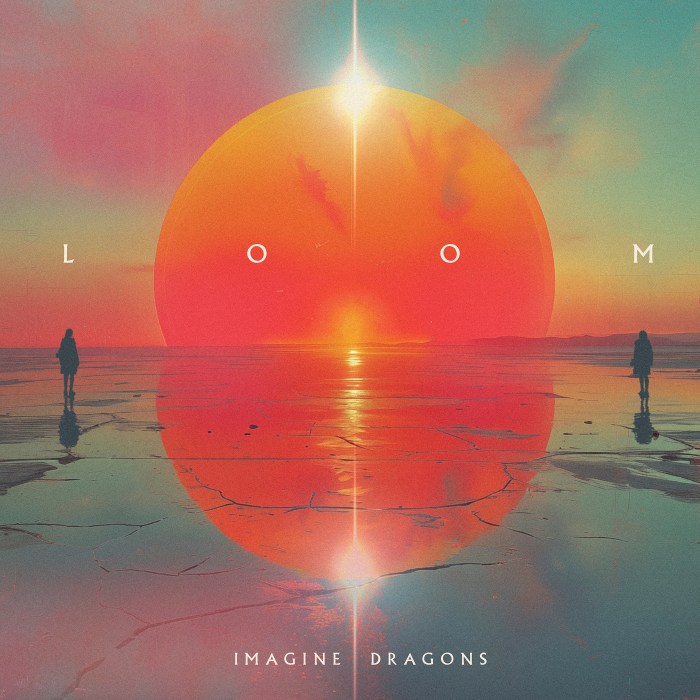Lesbian composer premieres tribute to Brooklyn’s most famous gay son
To hear her tell it, composer Jennifer Higdon leads a charmed life.
Higdon’s works began receiving performances shortly after she began her two years of composition study at Philadelphia’s famed Curtis School of Music. By 1994, after she had earned her doctorate from the University of Pennsylvania, she was making a living as a full-time composer.
“Most people ask when I burst on the scene,” Higdon said. “I didn’t burst on the scene. I’ve been working all along. It’s just a question of when the press started taking note.”
Annually, Higdon’s compositions receive roughly 100 performances. In marked contrast to many other composers whose works quickly fade from view, there is no Higdon composition that, once premiered, has failed to achieve multiple performances. Her music has become so popular that she can’t keep track of who’s playing what, and refers to her Web site for a complete list of upcoming performances.
“It’s kind of a good problem to have,” she quipped.
The most recent of the 25 or so CDs featuring Higdon’s music is Telarc’s stunning issue of the Atlanta Symphony Orchestra under Robert Spano performing her whirlwind “Cityscape and Concerto for Orchestra.” The disc received four Grammy nominations, winning “Best Engineered Album” for its Super Audio CD multi-channel presentation.
Higdon is also among five American composers whose music will be performed in the semifinals of the forthcoming Van Cliburn International Piano Competition in Fort Worth. Higdon is so busy completing commissions that her partner of 26 years, Cheryl Lawson, handles the management side of the business.
The two women met in high school and have been together ever since.
Even though Higdon’s ex-hippie parents, who moved the family from Atlanta to rural Tennessee, thought their teenage daughter might be gay, her mind was elsewhere.
“It was kind of funny,” she explained. “I was playing flute in marching band, hanging out with a group of people that included Cheryl and my brother. None of us dated, because being in a competition marching band meant we were out on the road every weekend. I probably became aware I was a lesbian during my last year of high school. After two years of friendship, Cheryl and I fell in love at the tail end of the school term. She was two years behind me in school but much more aware. I was too occupied with practicing music to think much about it. My brain was in music.”
On April 16, the Brooklyn Philharmonic, under Robert Spano, celebrates its 50th anniversary as well as the 150th anniversary of the publication of former Brooklynite Walt Whitman’s “Leaves of Grass” with the world premiere of Higdon’s “Dooryard Bloom.” Beethoven’s “Ninth Symphony” is also on the program.
The Whitman commission came through Spano. Higdon first met her colleague more than 20 years ago, when she was an undergraduate majoring in flute at Bowling Green University and Spano was conductor of the university orchestra. When Higdon boldly asked if she could attend Spano’s graduate conducting seminar, his assent inaugurated an association that has since produced multiple commissions, performances and Telarc recordings.
After Spano asked Higdon to set Whitman, she “read all his stuff” and decided to use what she considers to be the most set section of Leaves, “When Lilacs Last in the Dooryard Bloom’d.”
She was drawn to the “Dooryard” text in part because of “the death thing. I’m sure it had something to do in my subconscious with the death of my brother.”
Higdon’s brother, who died of melanoma at age 33, was memorialized in her transcendently beautiful 11-minute orchestral work, “Blue Cathedral.” The music’s shimmering surface and spiritual import are captured to near perfection on “Rainbow Body,” Spano’s Atlanta Symphony Telarc recording that also features music by Copland, Barber, and Christopher Theofanidis.
“I read a lot of Whitman’s poems that didn’t strike me or leave any kind of impression,” Higdon said. “Besides, the consonances of their words would not set well for the voice. ‘When Lilacs’ has such vivid imagery; it also transfers very well from spoken voice to singing voice without changing the feel of the poetry.”
Higdon described her 25-minute work for baritone and orchestra as “pretty lyrical and somber.” “The poem moves back and forth from thinking death is a bad thing to thinking death is a good thing. So I made the music go back and forth between darkness and lightness. I was thinking of all the different stages of grief.” Higdon said. “It’s tonal and melodic. Like all my pieces, it has a lot of color. It’s also got a lot of slow music, probably the most slow music I’ve ever written in one piece. My music in general is not slow. It’s almost never slow in fact. So it was a bit of a stretch for me.”
Higdon exemplifies a tendency in many composers to express themselves best with their music. Nonetheless, she clearly articulated her reason for switching from playing the flute to composing music fulltime.
“Composition is a very contagious thing,” she said. “All the people I know who do it professionally can’t live without it. You do it because you have to do it. It feeds my soul,” adding, as if it were a new revelation, “That’s basically it in a nutshell—it feeds my soul.”
gaycitynews.com


































